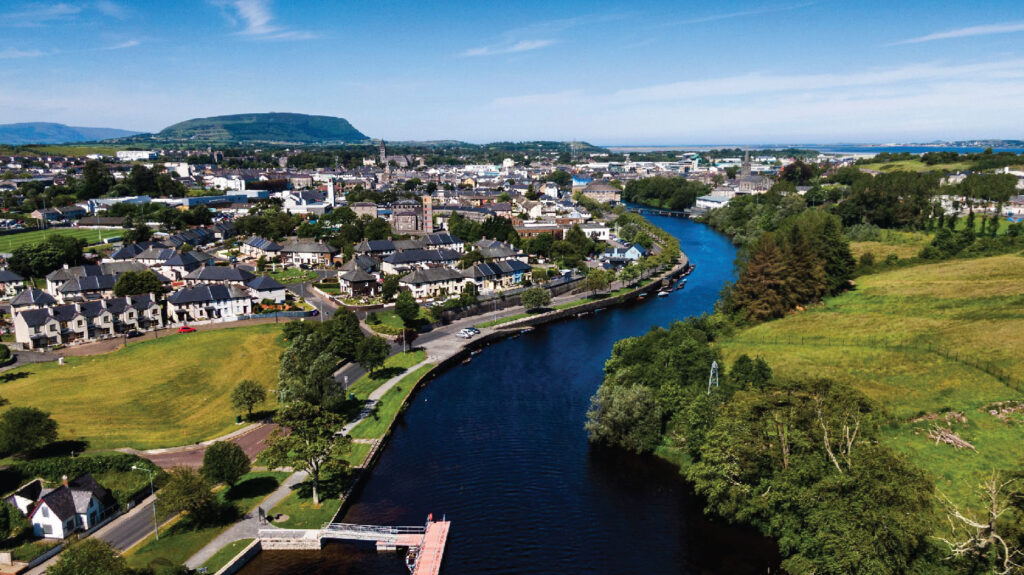
Located in the Border Region with Northern Ireland, UK Sligo is the largest town in the county, with a population of 22,560. The population of the county was 65,535 in 2016.
Sligo County Council, OPW, Clean Coasts, Atlantic Technological University, and CARO (Climate Action Regional Office).
Half of Sligo County is pasture. Sligo has a tradition of fishing, but only salmon is profitable. The lowland has small farms that depend on cattle, sheep, and poultry. Dairying and beef cattle are vital to the economy. Tourism has become a significant source of income. There are textile, food and pharmaceutical factories. Cattle are exported, and coal, iron, timber, and foodstuffs are imported.
Coastal storms and floods are becoming more intense and frequent, along with sea- level rise and coastal erosion. Changes in the Atlantic Ocean circulation are affecting temperature/preceipitation, including more heatwaves. These changes affect farmers, through shifts in crop- growth, and flooding affects farmlands and businesses.
Floods/extreme events are addressed through NBS like sand dune management and grey measures like coastal walls. Biodiversity parks, peatland restoration, Sustainable Drainage Systems (Su DS), afforestation etc. are other NBS projects. Academics are monitoring data through coastal sensors/climate modelling. Citizen engagement involves locals in climate-policymaking. Climate projects, like retrofitting houses, promoting e-bikes and EVs, windmills, community-energy, etc are encouraged.
Lack of resources/funding, limited knowledge of climate change, limited data availability, inefficient recording of data, limited citizen involvement, climate-vulnerable groups, inefficient transport and agricultural practices.

